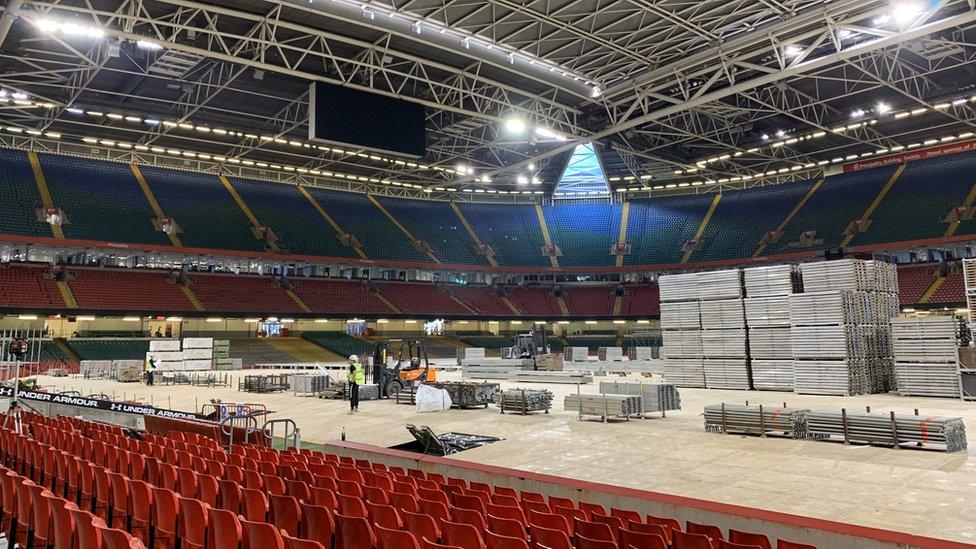Covid: Wales' film and TV industry 'not giving up'
- Published
After a challenging year, TV and film professionals are wondering what lies ahead
With Wales hosting the shooting of TV shows like His Dark Materials and movie Wonder Woman 1984 the nation is now a global player in entertainment.
But after a challenging year, industry professionals are wondering what lies ahead.
Actor Jennifer Ruth-Adams said she was "so panicked" when work was cancelled as Covid-19 took hold last April.
She and boyfriend Oliver Morgan-Thomas, also an actor, said the following months were "extremely difficult."
The actors
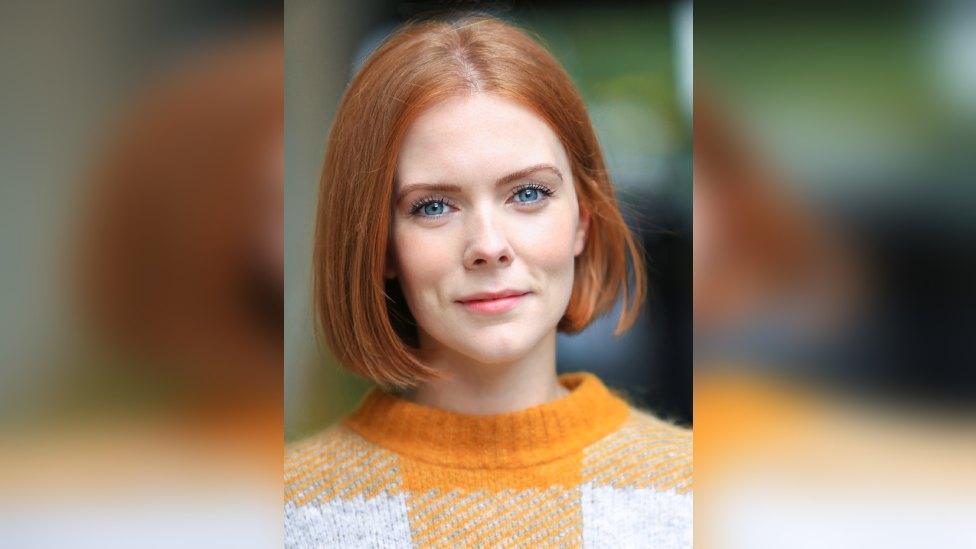
Actor Jennifer Ruth-Adams was "panicked" when work started being cancelled as Covid-19 took hold
Oliver was not eligible for the UK Government's self-employment income support scheme.
However, TV and film productions have resumed since the first lockdown, meaning there is hope for the couple, although competition for jobs is even stiffer as a result of the pandemic.
"All of the actors that predominantly worked in theatre, like me, are now fighting for jobs in TV and film because they're the only ones in production at the minute," Jennifer said.
For Oliver, the fact he has no TV or film jobs booked in has left him uncertain and questioning his career choice.
"I worry that financially I might have to think about an alternative career," he said.
"I don't want to, and I probably won't quit yet.
"I will keep trying and see if things get better, but it's definitely in the back of my mind."
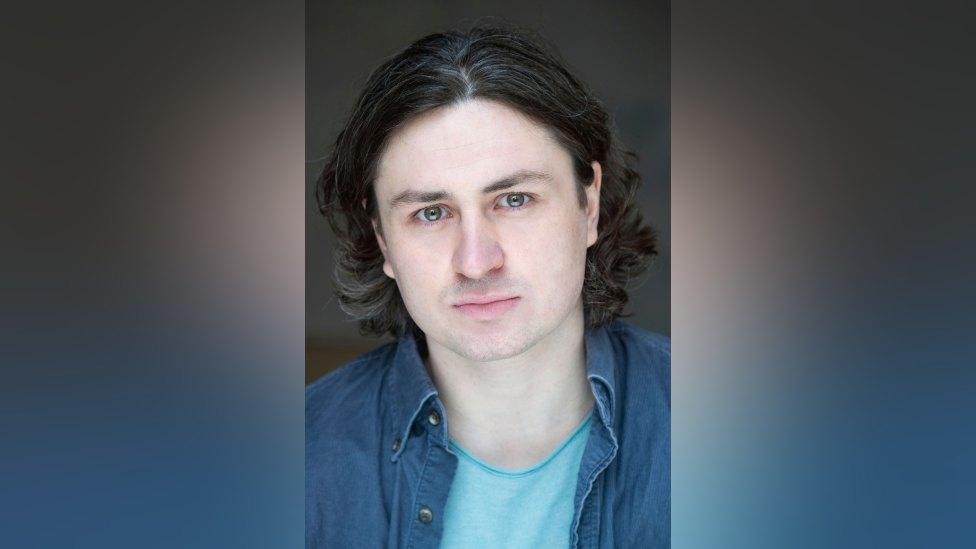
Jennifer and boyfriend Oliver Morgan-Thomas, also an actor, said the months after Covid took hold were "extremely difficult"
The studio
Tom Guy runs Dragon Studios, near Bridgend.
NBC Universal's TV adaptation of Brave New World was filmed there before the pandemic.
And Tom remains confident the future for film and TV in Wales is bright, despite its hiatus during the first lockdown.
He said if it weren't for the UK Government's industry restart scheme, only a "handful" of companies could have afforded the financial risk of beginning productions again.
In recent months, Dragon Studios has seen more inquiries for TV productions than films.
Tom put this down to the fact more people have been using streaming platforms during lockdown, leading to an "urgency to provide more content".
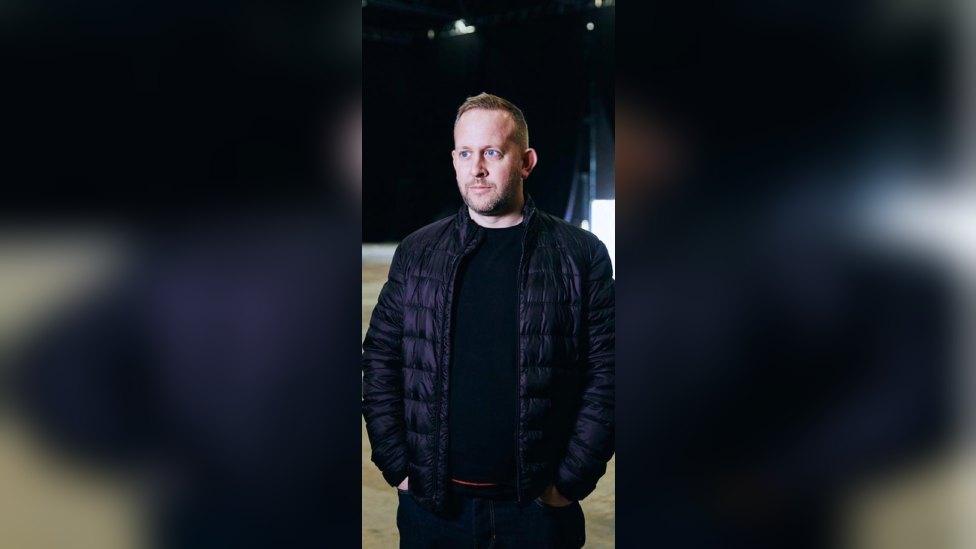
Tom Guy was confident the future for film and TV in Wales was bright despite the pandemic
He was optimistic the film and TV industries in Wales might be able to offer a "lifeline" to those who may have lost work in industries like leisure and hospitality, but who have "transferable skills" to bring to productions.
He said: "I'm quite passionate about having Welsh crew involved."
The cinema
Running since 1894 and overcoming several threats of closure in the past, the Market Hall Cinema in Brynmawr has seen its fair share of uncertainty.
However, trustee Beth Watkins is positive about the cinema's future.
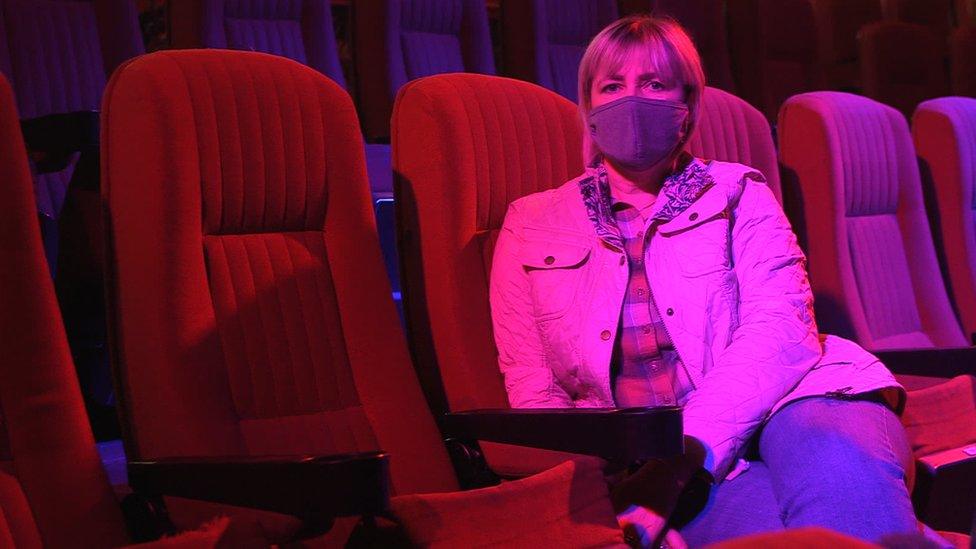
Beth Watkins said the Market Hall Cinema was "not going to give up now"
"It's been here for 127 years, we're not going to give up now," she said.
But the cinema's doors remain shut and, without a date to re-open, it is still "waiting for the right time to restart."
Beth said: "It's dependent on the furlough situation but also the film companies.
"We need movies. And we need to know it's a movie that's going to generate enough income to allow us to open and cover our costs."


The industry
Ffilm Cymru chief executive Pauline Burt, said the film and TV industry in Wales is a "game of two halves".
The development body, which provides support and distributes funding, said the past year has been "incredibly challenging" but productions were now "as busy, if not busier, than before."
Ffilm Cymru has six films in production in Wales.
Creative Wales, part of the Welsh Government, said it supported 11 production in 2020.
Pauline said things were still challenging for freelancers, many of whom could not get funding from UK government.
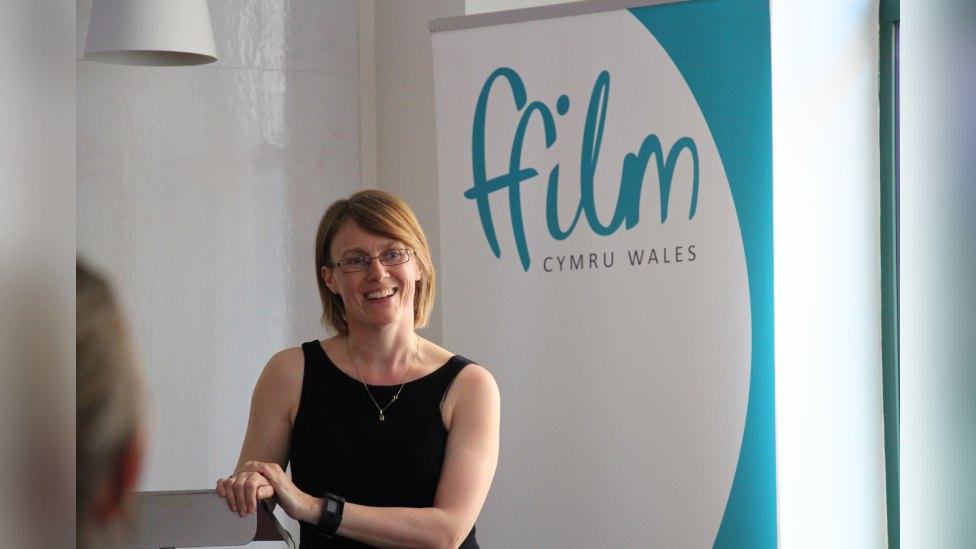
Ffilm Cymru chief executive, Pauline Burt, said the film and TV industry in Wales was a "game of two halves"
The Welsh Government set up a support fund for creative sector freelancers last October.
It has recently announced a further £8.9m, which is part of its £63m cultural recovery fund.
The first phase of the funding saw "high demand", with one council closing its application process after less than an hour.
The government said no problems had been reported in subsequent phases.
Ms Burt was concerned about the challenges experienced by the "audience-facing end of the industry" like cinemas, film festivals and community venues, which remain closed under current restrictions.
She said: "We have to see how peoples' behaviours have shifted.
"We really hope that communities will get out there and support their local venues".
- Published12 October 2020
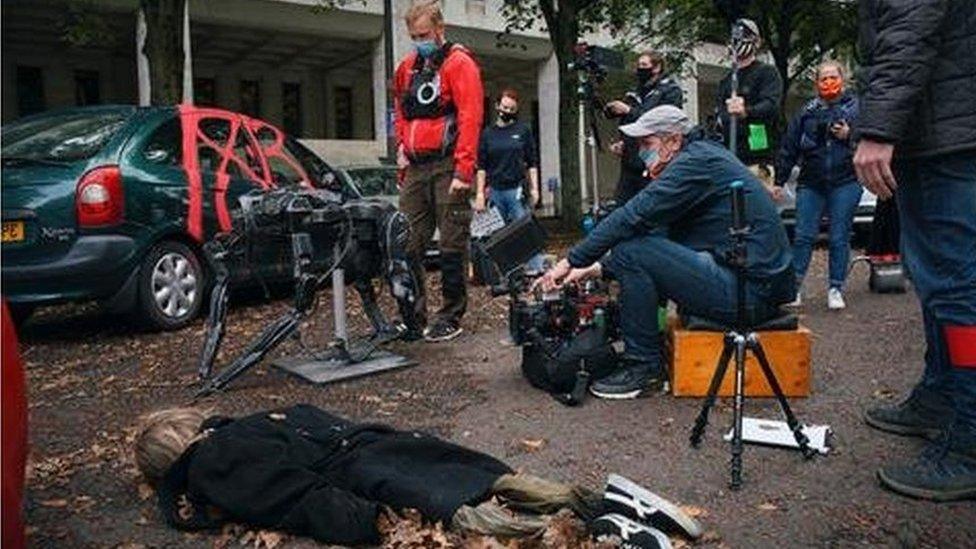
- Published7 March 2021
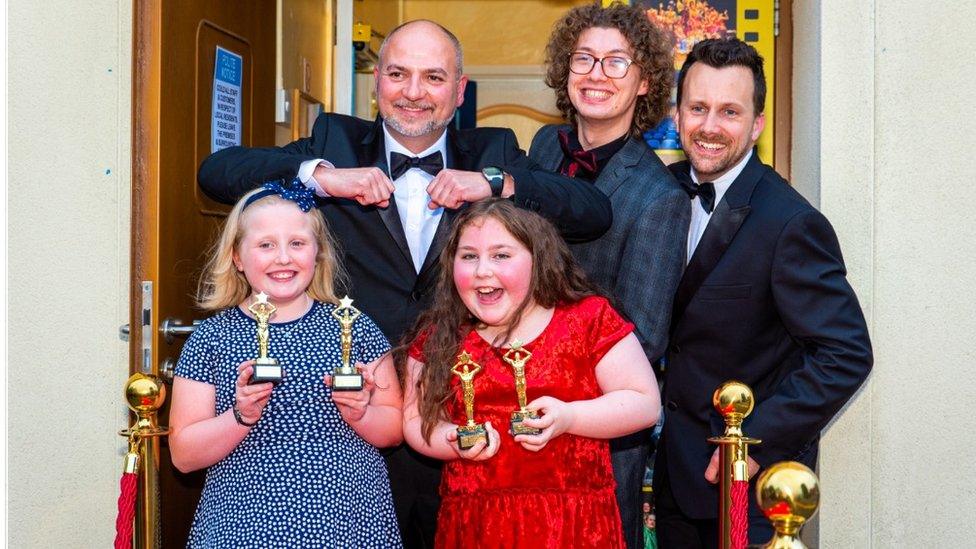
- Published15 April 2020
